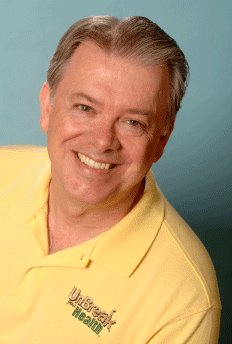Doctors who believe in God tend not to play God. According to a new British study published in the Journal of Medical Ethics doctors who are atheists or agnostics are almost twice as likely to make decisions that they think will quickly end the lives of terminally ill patients. Doctors with religious beliefs were twice as likely to talk with patients about life-ending decisions.
The study surveyed 8,500 British doctors, 42% of which responded. It was interesting to note that white doctors, the largest ethnic group to complete the survey, were less like than any other group to label themselves as deeply religious.
The British Medical Association said that regardless of religious beliefs the patient's needs should always come first.
Sunday, August 29, 2010
Tuesday, August 24, 2010
More Research
Western scientists love research ... they just have to get every square peg to fit into their round hole. Sometimes it doesn't work that way. A recent report in the New England Journal of Medicine said that a small study of fibromyalgia sufferers showed that many found relief with Tai Chi. The study was funded by the NCCAM.
The study group was divided into Tai Chi participants and those taking an educational class. After 12 weeks 79% of tai chi participants said their symptoms had improved while only 39% of those in the educational class reported improvement.
Why does it surprise American doctors that a 2,000-year-old medical system might have some beneficial features?
The study group was divided into Tai Chi participants and those taking an educational class. After 12 weeks 79% of tai chi participants said their symptoms had improved while only 39% of those in the educational class reported improvement.
Why does it surprise American doctors that a 2,000-year-old medical system might have some beneficial features?
Wednesday, August 11, 2010
Good News, Bad News
The good news is MRSA infection rates are down. The aggressive, drug-resistant staph infection caught in hospitals dropped about 16% from 2005 to 2008 indicating the prevention efforts at hospitals are working. However MRSA rates in schools, locker rooms and other settings were not included in the report.
The bad news is there is a new superbug according to a study published recently in the journal Lancet. Bacteria in south Asia have learned a new way to deactivate the antibiotics that usually kill them using a new gene called NDM-1. Normally confined to Pakistan and India the first case in America was identified in the U.S. this year. Cases have also been reported in the U.K.
The bad news is there is a new superbug according to a study published recently in the journal Lancet. Bacteria in south Asia have learned a new way to deactivate the antibiotics that usually kill them using a new gene called NDM-1. Normally confined to Pakistan and India the first case in America was identified in the U.S. this year. Cases have also been reported in the U.K.
Tuesday, August 10, 2010
Podcast Show Anniversary
Wow, just realized that my podcast show is over 2 years old. How time flies when you're having fun! The library has grown to over 60 shows with some of the leading figures in the world of complementary and alternative therapies.
UnBreak Your Health Podcast
UnBreak Your Health Podcast
Sunday, August 8, 2010
Regeneration
It always fascinates me when scientists try to play God, I always wonder if they can imagine all of the unintended consequences to their actions. Remember the scene in the movie Jurassic Park when the actor says something to the effect of - just because you can do it, it doesn't mean you should.
Two new studies published recently deal with regeneration, the ability to regrow body parts, an ability animals like newts and fish have but people don't.
Stanford has been able to turn off two genes that suppress tumors and they got mouse muscle cells to revert to a younger state to help repair tissue. Down the street at the University of California at San Francisco they're working with mice to reprogram the ordinary heart tissue cells into heart muscle cells, the type that are lost in a heart attack.
Many think humans gave up the evolutionary ability to regrow parts as a trade-off for fewer cancers. Tinkering with cells may have amazing healing properties, but it may also come with a trade-off.
Two new studies published recently deal with regeneration, the ability to regrow body parts, an ability animals like newts and fish have but people don't.
Stanford has been able to turn off two genes that suppress tumors and they got mouse muscle cells to revert to a younger state to help repair tissue. Down the street at the University of California at San Francisco they're working with mice to reprogram the ordinary heart tissue cells into heart muscle cells, the type that are lost in a heart attack.
Many think humans gave up the evolutionary ability to regrow parts as a trade-off for fewer cancers. Tinkering with cells may have amazing healing properties, but it may also come with a trade-off.
Subscribe to:
Posts (Atom)




